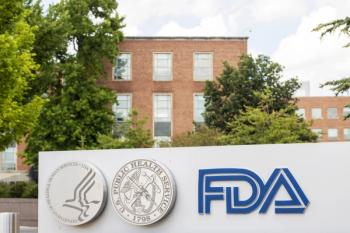
For the first target addressed in the partnership, the two companies reported the successful delivery of AI-designed, functional antibody leads.

For the first target addressed in the partnership, the two companies reported the successful delivery of AI-designed, functional antibody leads.

The company’s expanded label for Avtozma (tocilizumab-anoh) now includes the treatment of cytokine release syndrome, aligning the therapy with all indications for which Actemra is approved in the US.

The agency’s new program is designed to increase regulatory predictability and streamline review of domestic manufacturing facilities.

Experts from LGM Pharma and Rockwell Automation share their thoughts on what makes tech transfer effective, where processes could be improved, and why certain development and manufacturing decisions are so crucially important.

Jonathan D. Grinstein, PhD, Manfred Scholz, PhD, and Erik Wiklund, PhD, go behind the headlines to address a shifting policy landscape and what it means for the future of chronic disease, diagnostics, and next-generation cell and gene therapies.

Orforglipron showed clinically meaningful results at 72 weeks, after three doses, in a pool of more than 3000 adults.

The investment will expand the company’s manufacturing and packaging capabilities at its Maple Grove, Minn. site, which Bora acquired in 2024 with its acquisition of Upsher-Smith Laboratories.

Jerry Keybl, senior vice-president, Biopharma Products and Strategy, Avantor, discusses innovations in biomanufacturing and recalls his impressions of INTERPHEX 2025 held this past April.

Pharma manufacturing is headed toward smarter tools, deeper partnerships, and a renewed focus on compliance and quality at every stage of the product lifecycle.

The acquisition expands the CDMO’s small-molecule API development and manufacturing services in the US.

A new nuclear magnetic resonance method reveals real-time, coordinated changes in nanoemulsion drugs, improving noninvasive analysis and regulatory evaluation.

Findings from a Phase III study highlight the demonstrated action of donanemab-azbt (brand name Kisunla) in slowing the decline of patients exhibiting early symptomatic Alzheimer’s disease.

The company’s FDA-approved first generic sertraline capsules secured a 180‑day exclusivity period, highlighting strategic generic development pathways.

Radiopharmaceuticals are moving from their standard use of treating superficial tumors into radio drug conjugates that target tumors without impacting other cells in the body.

The program has been transitioned to a permanent pathway that is designed to support innovative tools like artificial intelligence, wearables, and biomarkers in drug development and trials.

The company presented new data from its Alzheimer’s disease research efforts across its diagnostics and pharmaceutical portfolios at this year’s AAIC.

If action is not taken within 60 days, the White House said it would “deploy every tool in our arsenal” to improve drug pricing practices for American patients.

Help us get a better picture of how new tariffs and trade policy have impacted you and your organization.

The changes, required for safety labeling of all opioid drugs, will emphasize the risks with long-term use to combat misuse and addiction.

7-OH and the leaf of the kratom plant are not analogous, but as the former is a derivative of the latter, it has opioid-like qualities that make its susceptibility to abuse concerning.

Prasad’s short FDA tenure brought stricter review standards for gene and COVID vaccines, sparking biotech concern and political backlash.

FDA’s latest whitepaper shows how scalable quality management investments in pharma reduce costs, improve reliability, and help prevent drug shortages.

The authors performed interference and enhancement testing using a formulated alkaline and acid cleaner, as well as common biopharmaceutical process residues.

Modular process design, single-use technologies, and flexible filling lines are some of the ways manufacturers can combat challenges involved in small-batch manufacturing.

Re-Vana’s drug delivery technology is designed to release treatments over a 6- to 12-month period, with the goal of reducing frequency of injections for patients.

EMA is phasing out animal testing and is asking pharmaceutical companies to use new approach methodologies.

The two companies have entered into an agreement to develop respiratory, immunology, inflammation, and cancer therapies.

Addressing human interventions to reduce their impact on contamination requires addressing broader considerations than limiting operator activities. Equipment, automation, procedural and component changes can be utilized to make the aseptic activities safer. This article offers suggestions for reducing the adverse impact of intervention throughout the aseptic process.

Cross-functional trade compliance planning is critical as pharma braces for broad 232 tariffs and shifting United States-China-India supply dynamics.

The agency has given a positive recommendation for a change in the gas propellant in Trixeo Aerosphere and Riltrava Aerosphere that will have a 1000-fold reduction in global warming potential compared to the current propellant.